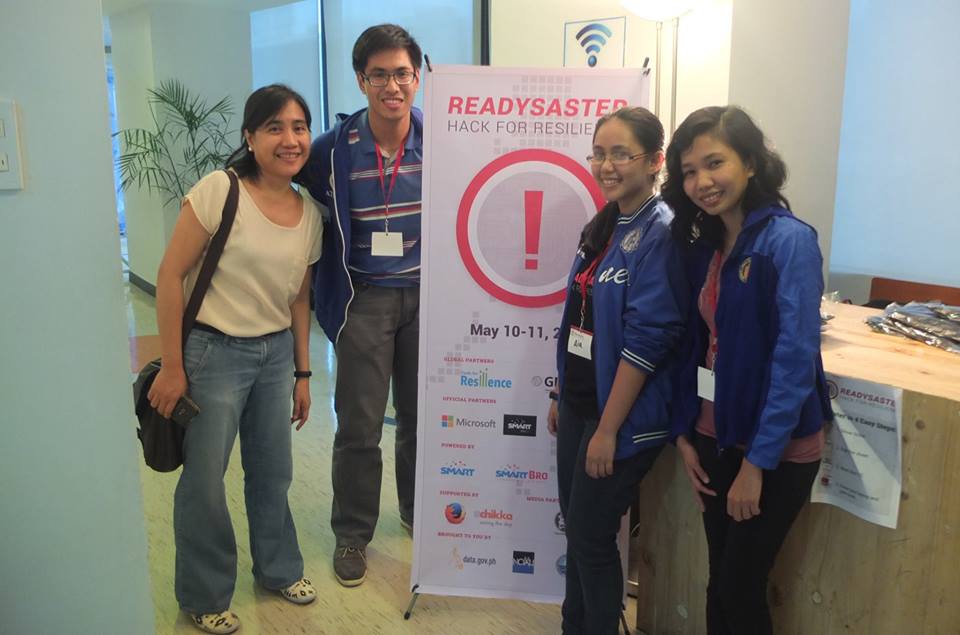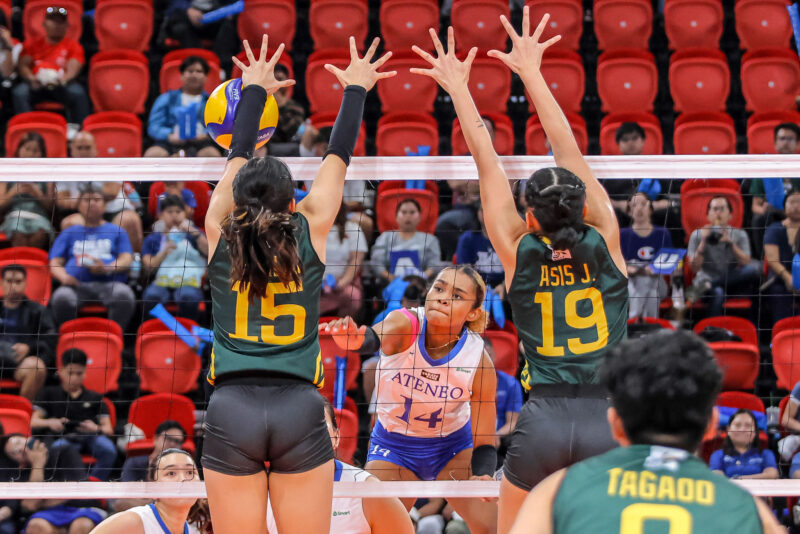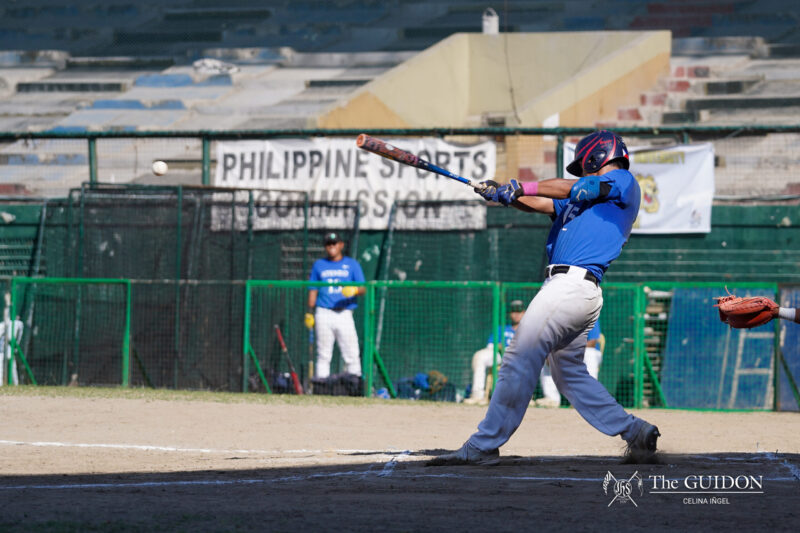THREE SUPERSENIORS taking up a bachelor of science and master of science in computer science won two awards for their mobile application, eUlat: Crowdsourcing Post Disaster Assessment, in the Readysaster: Hack for Resilience competition held on May 10 and 11.
Apart from being named one of the five winning teams, team Hail Hydra!, composed of John Noel Victorino, Jhoanna Isla and Aia Sia, also bagged the Most Inclusive Technology Award out of the 24 competing groups.
Victorino describes eUlat as a “tool for everyone.”
The application’s features empower ordinary citizens to become instruments in the speedy recovery of disaster-stricken areas by sending post-disaster assessments through short message service (SMS) to notify authorities and subscribed users.
The gathered data will then be compiled and validated into a more detailed report for online access, making it easier for the public to locate areas in need of relief operations.
Readysaster was a two-day event that brought together teams of developers to create web and mobile applications that will aid local communities to prepare for and reduce natural risk disasters.
Challenge
Prior to the competition, Victorino had joined a week-long Barangay Disaster Risk Reduction and Management workshop, which prompted him and the team to target post-disaster assessment for their project.
Victorino found the need to spread post-disaster awareness after learning about the plight of Yolanda survivors. “Noong dumating ‘yung [tulong galing sa Metro Manila] cities doon sa Yolanda areas [para magbigay ng relief], hindi nag-match yung dinala nila [na tulong] versus doon sa kailangan [ng survivors] (When [help from Metro Manila] cities came to the Yolanda areas [to bring relief], what they could offer didn’t match the needs [of the survivors]),” he said.
With eUlat, survivors and volunteers in the area could assess the situation themselves and send out alerts of what could be done.
According to Isla, the team made use of the convenience of mobile phones. “Inisip namin na ‘yung pinaka-accessible pa rin during disasters is yung SMS, kaya yung mobile application na ginawa namin, hindi siya through Internet nag-sesend; [yung application] yung magsesend ng message for you (We thought that the SMS is still the most accessible during disasters, so the mobile application that we created doesn’t send through the Internet, [the application] sends the message for you).”
The idea was for every barangay to acquire the eUlat application so that they can easily report their needs to all government bodies. eUlat also promotes transparency, as the national government can have a basis for sending local leaders requests for relief.
The team finalized the plan for their application on the night of May 10 and partially finished coding on the afternoon of May 11, right before pitching the idea to an audience.
Computer Science Department Associate Professor Ma. Regina Estuar, PhD served as team coach by listening and giving feedback to the group’s idea. It was also Estuar who came up with the name for eUlat.
All 24 teams presented their ideas to the panel of judges composed of Technical Consultant of World Bank Global Facility for Disaster Reduction and Recovery Yewondwossen Assefa, Project Nationwide Operational Assessment of Hazards Executive Director Mahar Lagmay, Union of Local Authorities of the Philippines Executive Director Czarina Medina-Guce, Department of Budget and Management Undersecretary Richard Moya, Senior Partner Channel Development Manager of Microsoft Philippines George Parrilla and Vice President for the Loyola Schools John Paul Vergara.
Catalyst
With eUlat’s purpose of allowing everyone to submit reports on vulnerable areas in the country and aiding the government in surveying what these areas need, the team sees eUlat as a catalyst of change in the community.
Victorino said that creating applications through coding and programming is an innovative way of aiding in disasters. “No one can prevent [disasters] from coming, but [with information technology], we can prepare ourselves.”
According to Islay, the team’s winning factor was its “sensitivity to the needs of disaster-stricken areas.”
Low-tech [ang eUlat], kasi kinonsider talaga naming na hindi lang government, hindi lang NGO’s yung gagamit ng application namin, pero kahit yung ordinary citizens (eUlat is low-tech because we really considered that it wouldn’t just be the government, it wouldn’t just be the NGO’s that will be using our applicaation, but ordinary citizens as well),” she said.
The team presently continues to develop eUlat.







